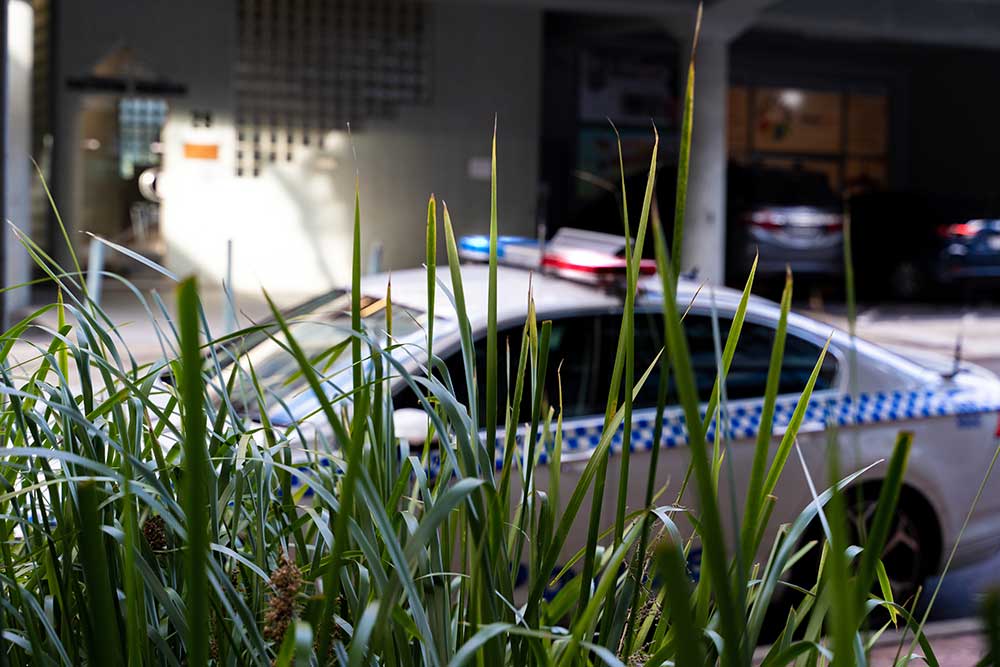Police Searches: How to respond when faced with police searches in NSW?
When confronted with a police search, it’s crucial to comprehend the legal framework governing such actions. The law in New South Wales requires that police adhere to certain procedures during searches to ensure they are conducted lawfully. Any deviation from these protocols may provide grounds for a strong legal defence.
One key aspect to consider is the requirement of a warrant. In most cases, police searches necessitate a warrant issued by a judicial officer. However, there are exceptions to this rule, such as searches conducted with consent or in urgent situations. It’s imperative to be aware of your rights and to discern whether the search was conducted within the boundaries of the law.
Law Enforcement (Powers and Responsibilities) Act 2002, gives the police powers to search a person. Under s21, in order to conduct a search, the police must suspect that the person has in their possession property that is stolen or unlawfully obtained, possesses, has used or intends to use an item that is dangerous to themselves or the public and or has drugs in their possession or control.
Further, under this legislation the police have the power to detain any goods found during the search and can be used as evidence in an investigation.
The police in all circumstances must have reasonable suspicion in order to search someone. In the landmark case of R v Rondo (2001) the courts underscored the importance of adherence to legal procedures during searches and more importantly defined what was meant by reasonable suspicion to conduct a search. The court held:
“Reasonable suspicion involves ‘less than a reasonable belief but more than a possibility’. There must be ‘something which would create in the mind of a reasonable person an apprehension or fear’. A reason to suspect that a fact exists is more than a reason to consider or look into the possibility of its existence.”
The police can also search you without a warrant – when you agree to the search (S34 –LEPRA), have been arrested and or taken into custody as long as they have reasonable grounds to suspect that:
- Has in their possession property that is stolen or unlawfully obtained,
- Possesses, has used or intends to use an item that is dangerous to themselves or the public and or
- Has drugs in their possession or control.
It is important to note that if a person is under 10 years old, s34 forbids police from searching them.
Furthermore, S32 of LEPRA sets out the rules and limitations that apply to police when conducting any type of search. This includes:
(1) A police officer who searches a person must, as far as is reasonably practicable in the circumstances, comply with this section.
(2) The police officer must inform the person to be searched of the following matters–
(a) whether the person will be required to remove clothing during the search,
(b) why it is necessary to remove the clothing.
(3) The police officer must ask for the person’s co-operation.
(4) The police officer must conduct the search–
(a) in a way that provides reasonable privacy for the person searched, and
(b) as quickly as is reasonably practicable.
(5) The police officer must conduct the least invasive kind of search practicable in the circumstances.
(6) The police officer must not search the genital area of the person searched, or in the case of female or a transgender person who identifies as a female, the person’s breasts unless the police officer suspects on reasonable grounds that it is necessary to do so for the purposes of the search.
(7) A search must be conducted by a police officer of the same sex as the person searched.
(7A) However, if a police officer of the same sex as the person who is to be searched is not immediately available, a police officer may delegate the power to conduct the search to another person who is–
(a) of the same sex as the person to be searched, and
(b) of a class of persons prescribed by the regulations for the purposes of this subsection.
The search by that other person is to be conducted under the direction of the police officer and in accordance with provisions of this Act applying to searches conducted by police officers.
(8) A search of a person must not be carried out while the person is being questioned. If questioning has not been completed before a search is carried out, it must be suspended while the search is carried out.
(8A) Subsection (8) does not prevent the asking of questions that only relate to issues of personal safety associated with the search.
(9) A person must be allowed to dress as soon as a search is finished.
(10) If clothing is seized because of the search, the police officer must ensure the person searched is left with or given reasonably appropriate clothing.
Conclusion
If you believe you have been searched incorrectly or without reasonable suspicion, it is imperative that you have a senior criminal defence lawyer review your case to present a compelling argument to the courts that could see your charges reduced or changed or the matter withdrawn completely.
At Repute Law, we pride ourselves on our intimate knowledge of such case law and our ability to craft defences tailored to the specifics of each case. Our team of senior lawyers, comprising seasoned court advocates, ensures that no stone is left unturned in defending your rights.
At Repute Law, we are well-versed in guideline judgments and leverage this knowledge to secure the best possible outcomes for our clients. Our commitment to excellence is reflected in our track record of achieving favourable results in even the most challenging cases.
What sets Repute Law apart is our unique composition—comprising solely of senior criminal defence lawyers with no junior associates. This distinction ensures that your case receives the attention and expertise it deserves from seasoned legal professionals. Our Case Concierges®, who are lawyers themselves, provide invaluable guidance, ensuring you are well-informed at every stage.
We pride ourselves on being one of the leading criminal law firms in Australia, with a legacy of success and a reputation for excellence. When facing the complexities of police searches in NSW, Repute Law stands as your staunch advocate, tirelessly working to safeguard your rights and secure the best possible outcome.
In the realm of criminal law, the stakes are high, and the need for expert guidance is paramount. Repute Law offers not just legal representation but a partnership dedicated to securing your rights and future. As you grapple with the challenges of police searches in NSW, remember that the decisions you make now can shape your legal trajectory.
Contact Repute Law Today, where our team of senior lawyers awaits to navigate the complexities of your case and chart a course toward justice. Your rights deserve to be defended by the best—trust Repute Law to be your unwavering ally.

